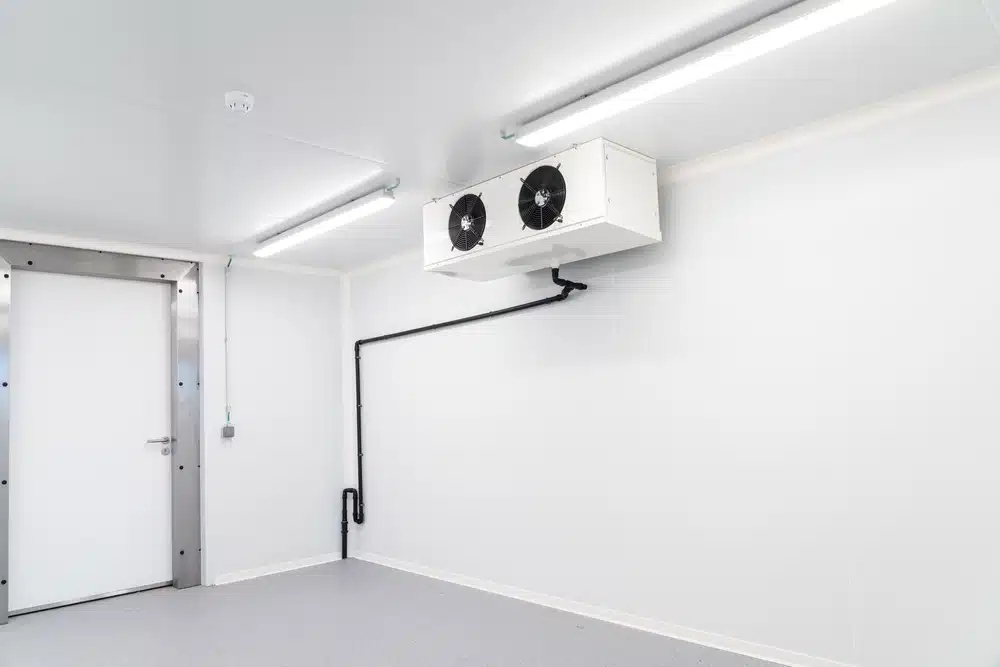Commercial refrigeration systems play a crucial role in preserving food and beverages, maintaining their quality, and preventing spoilage. Understanding how these systems work and the various industries that rely on them is essential for maintaining efficient operations and reducing energy costs. In this blog, we will cover everything you need to know about commercial refrigeration, from how it works to when it’s time for repair or replacement.

Commercial refrigeration refers to large-scale cooling and freezing systems businesses use to store perishable items at specific temperatures. These systems include walk-in coolers, freezers, refrigerated display cases, and refrigerated warehouses. These cooling systems help maintain food quality, preserve perishable goods, and reduce spoilage, ultimately contributing to the success and profitability of the business.
Commercial refrigeration is essential for various industries, including:
Commercial refrigeration systems work by removing heat from a space and expelling it outside. The system uses a refrigerant, a cooling agent that absorbs heat and changes its state from a liquid to a gas. The refrigerant then travels through a compressor, which raises its pressure and temperature. Next, the refrigerant enters a condenser, where it releases heat and returns to a liquid state. The refrigerant then passes through an expansion valve, where it evaporates and cools. As the refrigerant absorbs heat, it cools the surrounding air and maintains the desired temperature inside the refrigeration unit.
Regular maintenance of your commercial refrigeration equipment can help prevent costly repairs and extend its lifespan. Some tips for maintaining your equipment include:
To ensure the efficiency and longevity of your commercial freezer, update your maintenance checklist to include the following:
Energy efficiency is essential for commercial refrigeration systems, as it can lead to significant cost savings. To ensure compliance with energy standards and guidelines, consider the following:
Determining whether to repair or replace your commercial freezer depends on several factors, including the age of the equipment, repair costs, and energy efficiency. Consider the following when making your decision:
If you’re experiencing issues with your commercial refrigeration system, it’s crucial to find a reliable, experienced HVAC specialist to diagnose and resolve the problem. Look for professionals with expertise in commercial air conditioning, such as Thermal Air Conditioning Solutions serving Tweed Heads, Byron Bay, and the Gold Coast. By working with a trusted local HVAC specialist, you can ensure that your commercial refrigeration system operates efficiently, saving you money on energy costs and preventing product spoilage.
Contact us today on (07) 5524 7509 (Tweed Heads) or (02) 6638 0708 (Byron Bay) to get your project up and running.
Contractor’s License: 283 506C
QBCC License: 1310157
ARCTICK License: AU38131
| Monday | 8:30am – 4:30pm |
| Tuesday | 8:30am – 4:30pm |
| Wednesday | 8:30am – 4:30pm |
| Thursday | 8:30am – 4:30pm |
| Friday | 8:30am – 4:30pm |
| Saturday | Closed |
| Sunday | Closed |